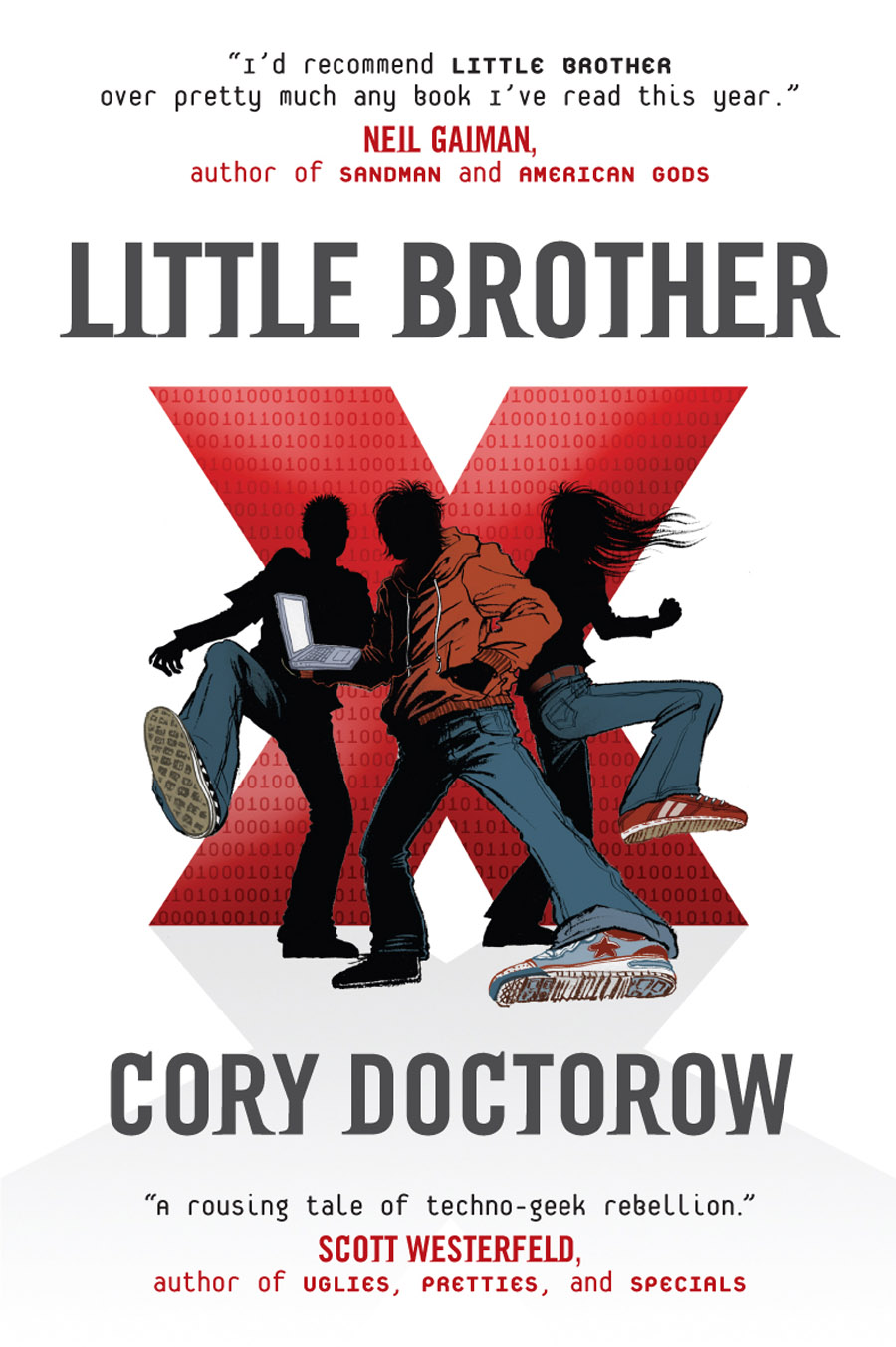Writers Changing Lives: A Chat With Cory Doctorow
Worldreader recently talked to Cory Doctorow, a science fiction novelist, journalist, and co-editor of Boing Boing. Besides chatting about his Worldreader participation (he has donated his books Little Bother, For the Win, and Content), we also discussed the challenges developing countries face in accessing books.
Frequently, the conversation circled back to copyright-related issues. That’s not surprising since Cory is a well-known technology and digital rights activist. Additionally, as Worldreader becomes an important intermediary between readers, authors, publishers, device manufacturers, and governments in developing nations, a more public dialog on the topic seems warranted.
Here’s a brief overview of the interview, which has been edited for length.
WR: Why did you get involved with Worldreader?
Cory: On one hand, I didn’t have to do anything particularly special to get involved. All of my books are signed under Creative Commons’ licenses [which encourage their re-use and sharing]. And, there’s a 0.0% chance that any of these people who are getting these books in the developing world would have ever converted to being a paying customer, so there are no displaced sales.
On the other hand, I’ve been involved in international development issues for a long time. When I was in my early 20s, I moved to the Nicaraguan border and helped build schools in a squatter village there and in Costa Rica.
And, it’s a good thing. The world is a better place when people have access to more information. The goal of universal access to all human knowledge is a noble one.
WR: Which book made you fall in love with or changed your life?
Cory: The first book I read to myself was Alice in Wonderland, and it will always have a soft spot in my heart. I even married a woman named Alice. But, to call that the most important book in my life – or any book the most important book in my life or the book that made me fall in love with reading – would be a lie. There is not just one book that made me fall in love with reading. There are not even one hundred books that made me fall in love with reading. There are thousands of books that made me fall in love with reading.
WR: What are you reading now?
Cory: Just last night I finished reading the manuscript for Ian McDonald’s first young adult novel, which is called Planesrunner [due out in 2012]. It’s unbelievably good! McDonald is one my favorite writers, and [this book] is at the same time completely unlike and typical of his work. It ends on such a cliffhanger…I really want to read the next one.
WR: What advice do you have for kids in developing countries who are just beginning to read and only have recently gotten access to books because of technology advancements?
Cory: I have a couple of pieces of advice about reading. One is that the most dangerous thing in the world is someone who has only read one book. The great thing about reading is that you can triangulate your ideas among lots of different authors, different times, or different place. When you read widely and broadly it shows you that everything is relative. It shows that there is a lot of ways of looking at things, and often times, problems can become solutions if looked at creatively.
The other piece of advice I would give them about reading electronically is to not allow their collections to be tied to one device or platform. Devices come and go, but data can live forever. The only way you can maintain access to them is if you insist on the ability and the right to move the books into any format or any platform you want to.
WR: Do you think that’s feasible in the developing world where access to books and technology is still very limited?
Cory: I think the developing world has to insist on this, and they can do some of this through their copyright laws. It’s not technically challenging to move a book from one device to another; it’s just legally difficult to do so. One of things developing counties can do is simply not sign or implement treaties that require them to limit access to information in an unfair or unprecedented way.
WR: What role do you think Worldreader can play in facilitating copyright issues and content distribution?
Cory: Something I hope Worldreader would do is to talk to publisher associations, lawmakers, and international copyright organizations about the importance of having flexibility. If we are talking about countries that are unambiguously poor, or countries that are on the IMF [International Monetary Fund] or World Bank’s list of poorest nations, I can’t see any reason why there couldn’t be a copyright treaty like the one that is currently under development at WIPO [World Intellectual Property Organization] that preserves the rights of people in developing nations, people who are blind or have other disabilities, and educators and archivist who need access to information.
Why couldn’t we say, ‘If you’re among the world’s poorest nations, you can have access to any book that can be digitized?’ Today, in the world’s richest nations, it’s always legal to take books and convert them into formats that are accessible to blind people. Why can’t we have an exemption like that that would apply to the world’s poorest nations? The social benefits that arise from this are so unambiguous, and the harm is so minimal.
Thanks for the chat, Cory! You’ve given us food for thought.
For more information about how Worldreader is bringing books to all in the developing world using e-readers, visit us at Worldreader.org.






